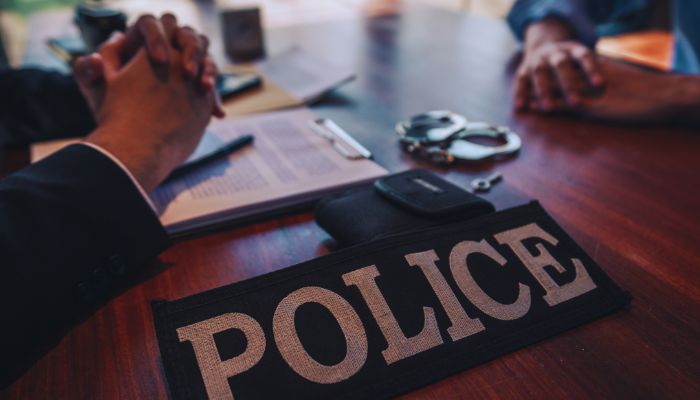
How Should You Handle Police Interviews in Ipswich?
In Ipswich, as in any city, encountering the police can be a daunting experience, especially if it leads to a police interview. Whether you’re dealing with a minor infraction or a more serious allegation, understanding your rights and responsibilities is crucial. Police interviews are a common aspect of law enforcement’s approach to resolving criminal matters, and being prepared can significantly affect the outcome. This guide aims to provide clear and practical advice on how to handle police interviews in Ipswich, ensuring that you’re informed and ready for any such encounters.
Key Takeaways
- Know Your Rights: Understand your right to remain silent, the right to seek legal advice, and the limitations of police powers. These are fundamental in protecting yourself during an interview.
- Preparation is Crucial: If you’re aware of an upcoming police interview, prepare by understanding the nature of the interview and seeking independent legal advice.
- Legal Representation Matters: Consider having a lawyer or a support person with you during the interview. Legal professionals can guide you through the process and ensure your rights are protected.
- Responding to Questions: Stay calm and focused during the interview. Remember, you have the right to remain silent, , especially if you are unsure about how to answer.
- Different Offences, Different Approaches: The nature of the alleged offence can significantly change how you should handle the interview. Serious offences require careful navigation and legal guidance.
- Recording and Documentation: Be aware that police interviews are recorded and can be used as evidence. Speak clearly and cautiously, understanding the implications of your statements.
- Challenge Improper Questions: If you face inappropriate or irrelevant questions, know that you have the right to refuse to answer them.
- After the Interview: Discuss with your lawyer the next steps, whether preparing for potential charges or following up on the investigation’s progress.
- Continuous Legal Support: Stay in contact with your legal representative for guidance on how to proceed post-interview, whether it’s preparing for court or challenging the allegations.
- Individual Circumstances Matter: Each case is unique. Always seek personalized legal advice tailored to your specific situation for the best course of action.
Understanding Your Rights
The Right to Remain Silent
In Ipswich, as in the rest of Australia, you have the right to remain silent during a police interview. This means you do not have to answer any questions, except for providing your name and address. This right to silence is a fundamental aspect of your legal protection and is crucial in preventing self-incrimination. However, it’s important to understand that in some cases, such as when you’re asked to provide your name and address, refusing to answer can have legal consequences.
Seeking Legal Advice
You also have the right to seek legal advice before and during a police interview. This can be from a lawyer of your choice or through a legal aid organisation if you cannot afford one. Legal representation is vital, as a lawyer can guide you through the process and inform you about the implications of the information you provide the policet. They can also help you understand the nature of the police powers being exercised in your situation.
Police Powers and Limitations
Understanding police powers and their limitations is essential. Police officers in Ipswich have the authority to ask questions and conduct interviews, but they must also respect your rights. This includes informing you of your right to remain silent and your right to seek legal advice before they question you about an indictable offence. Knowing these rights can help you navigate the interview process more confidently and protect your interests.

Before the Interview
Preparing for a Police Interview
If you’re informed about a forthcoming police interview, it’s crucial to prepare. This involves understanding the nature of the interview, whether it’s a formal interview for a criminal offence or a more informal setting for gathering information. Preparation also means considering the potential implications of the interview on your legal situation.
Independent Legal Advice
Before attending the interview, seek independent legal advice. This can be from a private lawyer or a legal aid organisation in Ipswich. Legal professionals can provide tailored advice based on your specific circumstances, including the alleged offence and your rights during the interview.
Deciding on Legal Representation or a Support Person
Consider whether to have legal representation or a support person with you during the interview. A lawyer can advise you during the interview and ensure your rights are protected, while a support person can provide moral and emotional support. The decision will depend on the nature of the case and criminal matter and your personal comfort level.
During the Interview
Navigating the Interview Process
During the police interview, it’s important to stay calm and focused. You’ll be asked various questions, ranging from basic ones like your name and address to more complex inquiries about the incident or offence. Remember, you have the right to remain silent, and you can choose not to answer questions beyond basic identification information.
Strategies to Remain Calm
Feeling nervous or anxious during a police interview is normal. To manage this, focus on listening carefully to each question. Avoid rushing into answers, as we suspect this can lead to accidentally admitting something that may not be in your best interest.
Understanding Your Status
Be clear on whether you are being formally detained, arrested, or simply accompanying the police voluntarily. Your rights and the police officer’s powers vary significantly in each scenario. If you’re under arrest or detained, you have specific legal protections about how long police are allowed to hold you without charge.
In the next sections, we will delve into handling different types of offences during questioning, the importance of recording and documentation during the interview, and steps to take after the interview. Stay informed and prepared to ensure your rights are upheld during police interviews in Ipswich.

Special Considerations for Different Types of Offences
Indictable Offences vs Minor Infractions
Handling police interviews varies significantly depending on the nature of the offence. For indictable offences, which are more serious and typically tried in a higher court, the need for legal representation to accompany police, is paramount. These interviews are often more complex and have greater implications. For minor infractions, such as broken traffic laws, the interviews might be more straightforward. However, it’s still advisable to understand your rights and the potential consequences of your statements.
Advice for Specific Allegations
In cases of specific allegations like drug matters or serious criminal offences, it’s crucial to be aware of the special laws and regulations that apply. For instance, drug matters may involve additional questions about sources and quantities that require careful navigation of criminal law. Always seek specialized legal advice in these scenarios to ensure that your responses are appropriate and legally sound.
Navigating Serious Allegations
For serious allegations, the stakes in a police interview are higher. It’s important to be fully aware of the alleged offence, the evidence against you, and the potential consequences. In such cases, remaining silent until you consult with your lawyer is often the best course of action. Your lawyer can guide you on whether and how to respond to the officer with specific questions.

Dealing with Recording and Documentation
The Recorded Interview Process
In police interviews, the conversation is recorded electronically. This recording can be used as evidence in court. Be aware that anything you say can be part of this official record. It’s important to speak clearly, truthfully, and to avoid making any statements without understanding their implications.
Challenging Improper Questions
During the interview, you may face questions that are inappropriate or irrelevant. It’s your right to challenge these questions or refuse to answer them. Your lawyer can intervene on your behalf to object to such questions and ensure that the interview process remains fair and lawful.
Protecting Against Self-Incrimination
One of the key reasons to exercise your right to remain silent is to protect against self-incrimination. Be cautious about making any statements that could be interpreted against your interest. If you’re unsure about how to answer a question, it’s often safer to consult with your lawyer before responding.
After the Interview
Post-Interview Steps
After the interview, if you’re not detained or arrested, you’re free to leave the police station. However, the process doesn’t necessarily end there. Discuss with your lawyer the next steps, which may include preparing for potential charges, gathering evidence for your defence, or following up on the investigation’s progress.
The Role of Interview Evidence
The information provided during the interview can play a significant role in any subsequent criminal proceedings against an accused person. It can be used as evidence by either the prosecution or the defence. Understanding this can help you appreciate the importance of the advice given during the interview and why certain questions were asked.
Legal Follow-Up
Whether you’re formally arrested and charged or released after the interview, it’s important to stay in contact with your legal representative. They can provide guidance on how to proceed, whether it’s preparing for a court appearance, negotiating a plea, or continuing to challenge the allegations.
Conclusion
While police interviews can be intimidating, being prepared and informed is your best defense. Understanding your rights, the significance of basic questions in the interview process, and the role of legal advice cannot be overstated. By following these guidelines and seeking professional assistance when necessary, you can ensure that your rights are protected and that you’re well-prepared to handle any police interview in Ipswich.
Remember, every situation is unique, and this guide serves as a general overview. For specific advice and support tailored to your circumstances, always consult with a legal professional. Stay informed, stay calm, and approach police interviews with the knowledge and confidence needed to protect your legal rights.
This article is of a general nature and is intended for information only. It should not be relied upon as legal advice. If you require further information, advice or assistance for your specific circumstance, please contact us at Bouchier Khan Lawyers.
